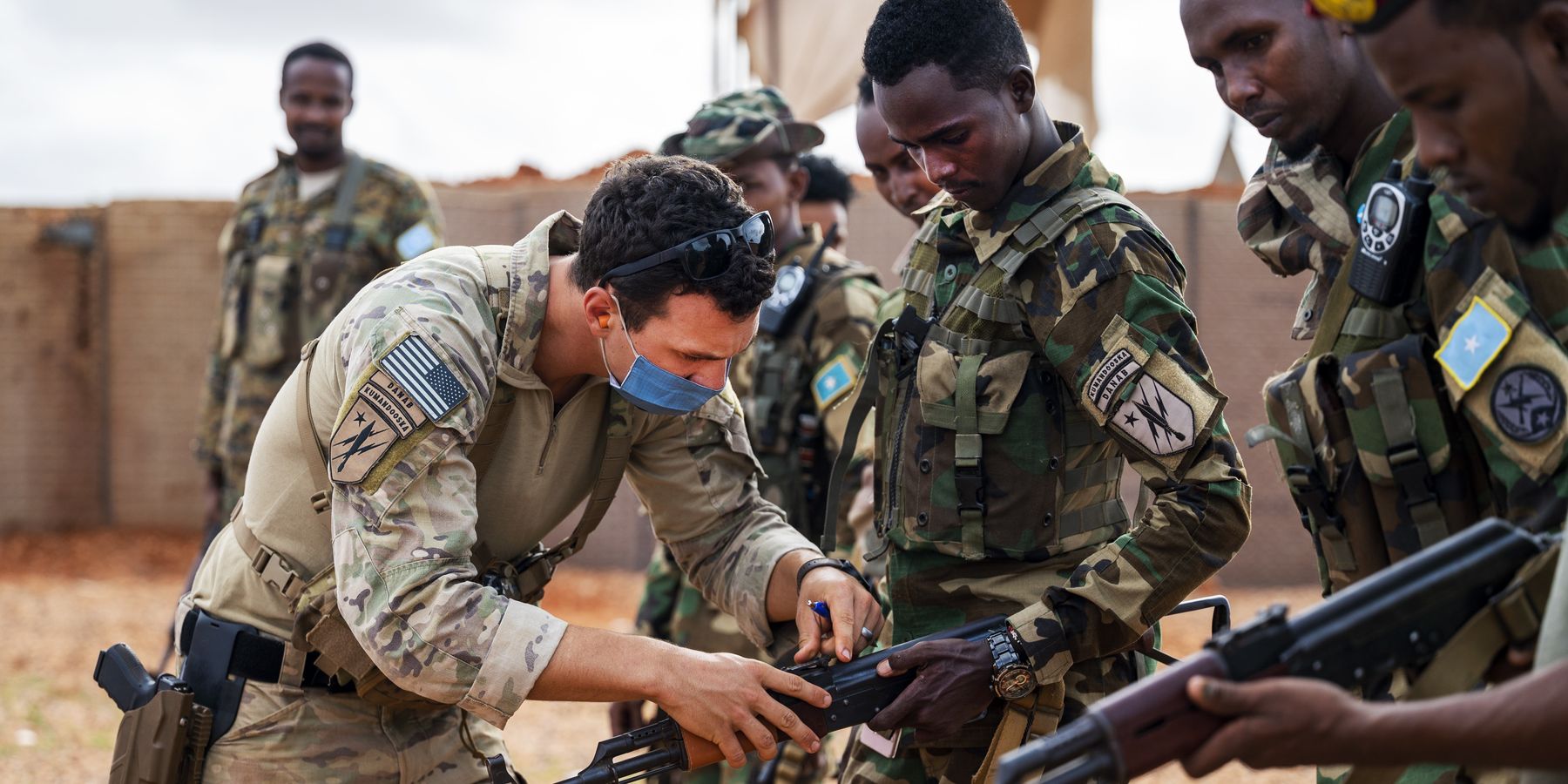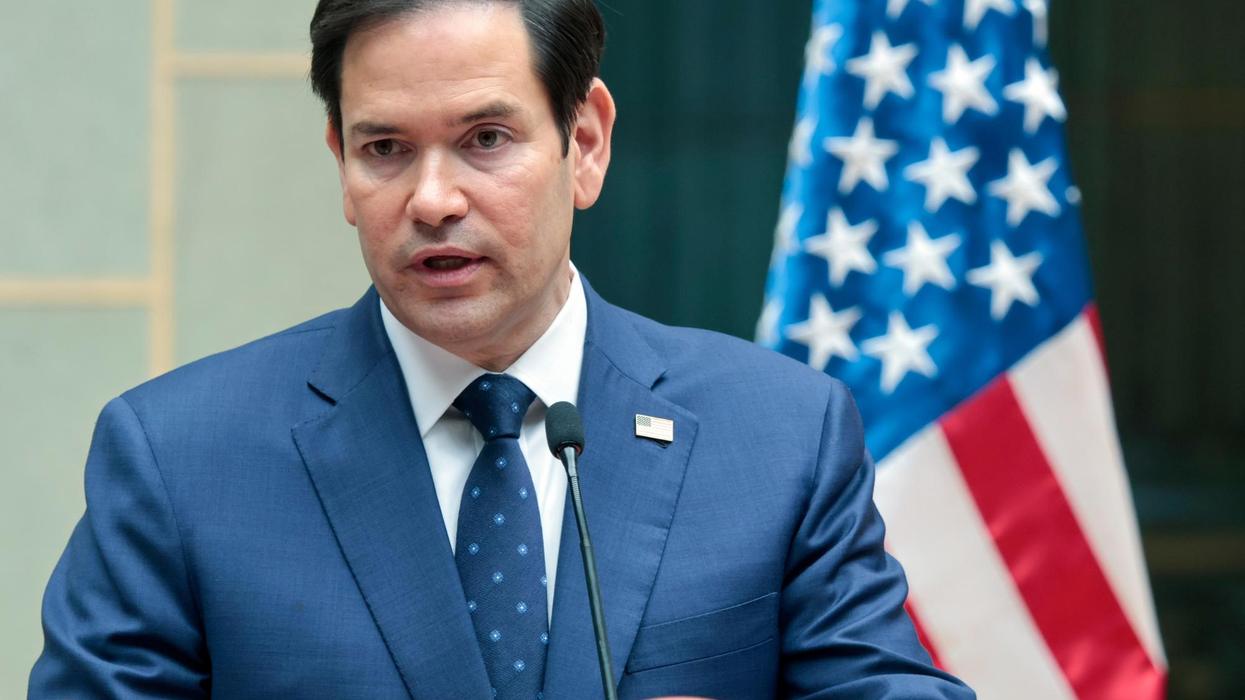The New York Times reported earlier this month that recent gains by al-Shabaab Islamist militants in central and southern Somalia has prompted a debate within the State Department about closing the U.S. Embassy in Mogadishu and withdrawing most American personnel. At the forefront of some officials’ minds, according to the Times, are memories of recent foreign policy fiascos, such as the fall of the Afghan government amid a hasty American withdrawal in 2021.
There are good reasons to question why the U.S. has been unable to defeat al-Shabaab despite nearly 20 years of U.S. military involvement in the country. But the scale of the U.S. role is drastically different than that of Afghanistan, and the U.S. cannot necessarily be described as the most significant external security actor on the ground. At the same time, the Trump administration has given no indication that it will scale down drone strikes — meaning that the U.S. will continue to privilege military solutions.
Flaws in the Afghanistan analogy
The Taliban takeover of Afghanistan in 2021 is often brought up as a potential outcome in Somalia. This analogy appears to have taken more urgency recently as al-Shabaab has regained some of the territories it had been evicted from since 2022. While the analogy is helpful in some regards — including, highlighting the stubborn pliability of al-Shabaab and the fragility of the Somali government — it is misleading in one important aspect: the American military presence in Somalia has never been comparable to the U.S. occupation of Afghanistan, which at its peak reached over 100,000 troops.
By comparison, the U.S. has about 500 to 600 military personal in Somalia, largely because it has sought to avoid the costs that come with deploying significant numbers of its own troops, instead relying on Somali and other African troops to fight al-Shabaab. For the past decade, the U.S. has trained, equipped, and financed an elite commando unit, “Danab” (lightning), numbering between 3,000-5,000 soldiers. Alongside the European Union, the U.S. was a key financial contributor to the African Union (AU) mission in Somalia, which at one point included 22,000 forces. But the U.S. has recently signaled that financial support for the AU mission will be cut, and it’s unclear how the newly mandated African Union Support and Stabilization Mission will be financed.
Consequently, it is not certain that a drawdown of U.S. diplomatic presence would significantly alter the situation on the ground given the scope of U.S. military engagement in Somalia. Moreover, there are other players who shape the political, economic, and security landscape in Somalia, including Ethiopia, the UAE, and Turkey.
Turkey is arguably Mogadishu’s most important security and diplomatic partner today. Turkey has its biggest embassy and military training center, Camp TURKSOM, in Mogadishu. Somalia and Turkey have signed a raft of military/security and economic agreements over the past decade and half. The Turkish trained “Gorgor” (eagle) regiment, along with the American trained Danab are the two most effective fighting units against al-Shabaab. As al-Shabaab made some gains over the past couple of months, President Hassan Sheikh Mohamud made two trips to Ankara, where he has reportedly signed an agreement that would allow Turkish private forces to actively assist and lead Somali security forces in the fights against al-Shabaab. In light of Turkey’s increasingly prominent role in Mogadishu’s security/military calculations, the scaling back of U.S. diplomatic presence in Mogadishu may have limited impact. We could, instead, see a deepening of Turkish military/security assistance to Mogadishu, and engagement in the fight against al-Shabaab.
The fallacy of a military solution
The discussion within the State Department appears to be debating two alternatives. The first is reduction and/or withdrawal of U.S. Embassy staff in Mogadishu with the fear that this would further undermine confidence in the Somali government and hasten its collapse. The second is staying the course and potentially increasing the drone campaign against al-Shabaab. It is not clear what U.S. policy makers hope to gain by increasing the drone campaign against al-Shabaab that has not been achieved over the past two decades of (undeclared) war with al-Shabaab. It is noteworthy that the Times failed to ask the more difficult question, namely, why is al-Shabaab on the front foot after over a decade and half of war? I offer two points for consideration.
First, alongside the military campaign against al-Shabaab, a range of foreign governments have supported a state-building project in Somalia since 2009. Theoretically, this endeavor was meant to accompany the military campaign against al-Shabaab by putting in place an accountable government. What has instead transpired over the past decade and half is the emergence of a government in Mogadishu that is dependent on external support, focused on the capture of foreign and domestic funds and contracts, and beholden to donor demands.
Rather than creating inclusive institutions and governance systems focused on service delivery, the state-building process has produced a bargain between Somali elites and the donor industry that is removed from local realities and legitimacy. The government in Mogadishu is outward looking and detached, for the most part, from the concerns of the local population, except via lineage-based patronage networks to secure indirect and corrupt electoral advantages. Thus, basic governance and service delivery has progressed very little over the past 15 years. Al-Shabaab’s resilience is, therefore, a symptom of these state-building and governance failures.
Second, it’s important to keep in mind a few things about al-Shabaab as an organization. Its rejection of the presence of foreign troops in Somalia is something that resonates with people. The fact that al-Shabaab itself has foreign fighters in its midst has been a point of contention within al-Shabaab, and in the larger society. In contrast to the Somali government, al-Shabaab has always had a more effective outreach campaign by, for instance, utilizing Somali oral poetry, a deeply-rooted cultural tradition, to reach the local population. Its outreach campaign remains potent even as its wanton violence has alienated the majority of the population.
In its recent offensive, al-Shabaab is reported to have shifted its tactics and strategies. The group has reportedly de-emphasized the use of large-scale indiscriminate bombings. Furthermore, unconfirmed reports suggest al-Shabaab is offering to forgive government soldiers they capture, and telling communities that they will be allowed to continue their lives and no revenge will be meted out to those who previously worked with the government, in exchange for abstaining from associating with the government.
The continued governance failures by the internationally backed Somali government, combined with al-Shabaab’s strategies and adaptations makes it unlikely that a continuous American drone campaign will be any more effective now than it has been in the past. Without a more thorough examination of the shortcomings of the international military engagement and state-building activities in Somalia, the discussion about closing the U.S. Embassy in Mogadishu is in some ways a smokescreen and a knee-jerk reaction. What is needed instead is a more fundamental reconsideration of military solutions to what are ultimately political problems.
















